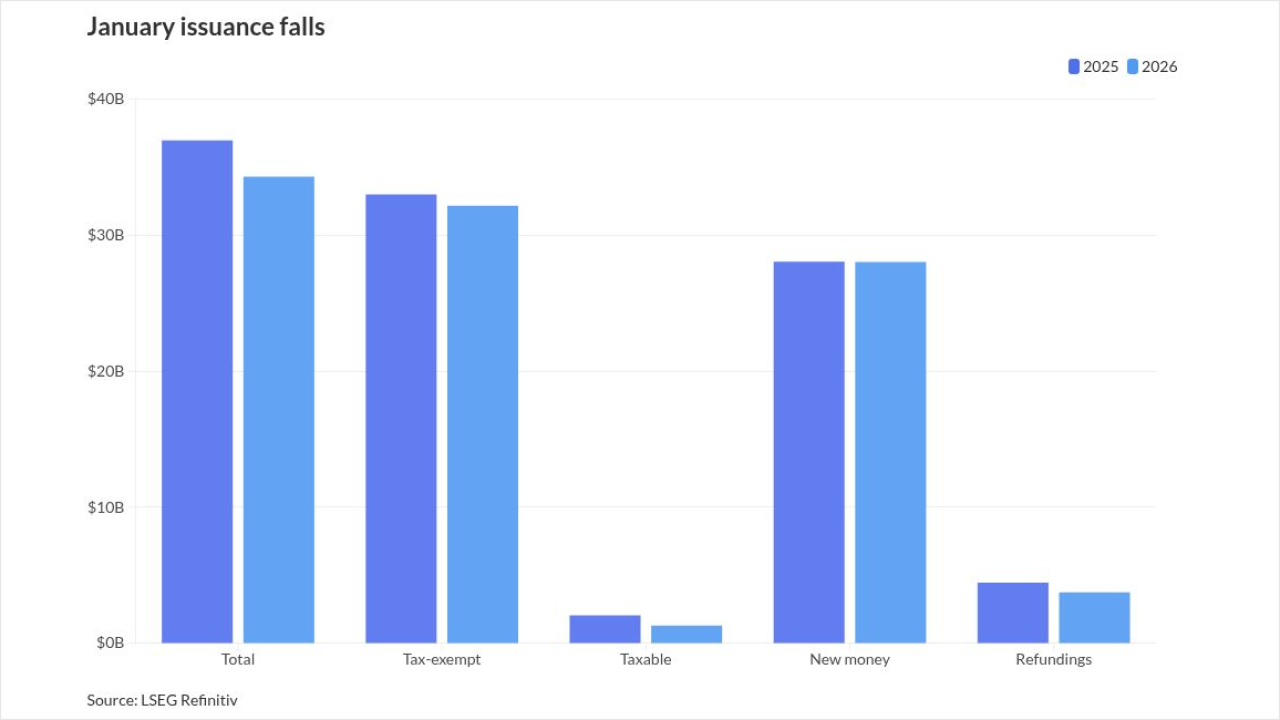Several states have passed legislation to increase funding and expand access to lower-cost borrowing for charter schools, a move deemed a credit positive by Moody’s Investors Service.
Though borrowers stand to benefit from trends that increase access to funding and apply more stringent standards to charter approvals and renewals, Moody’s cautioned in a Monday report that bondholders could face nonpayment in cases where increased scrutiny prevents a charter's renewal.

Texas, Georgia, Colorado, Florida and Michigan were among states that have expanded access to funding.
Texas legislation will expand guarantees for charter school borrowing from the Texas Permanent School Fund to $5.7 billion by 2022 from $1.5 billion two years ago. Georgia increased state funding directly while Colorado, Florida and Michigan mandated local school districts share more local tax revenue with charter schools.
Moody's also viewed the expansion of the nonprofit Charter School Growth Fund, which provides funding support to charter schools in 28 states, as a credit positive for the sector. It also viewed positively low-cost financing provided by the Equitable Facilities Fund.
Georgia, Kentucky, Oklahoma and California were cited as states that face budgetary and political hurdles that could stall expansion.
Georgia passed a law in 2017 establishing annual facilities grants of $100,000 per eligible charter school, but funds were never appropriated in fiscal 2018 or 2019, and the 2020 appropriation is only sufficient to provide $40,000 per eligible charter school. Kentucky voted to allow charters in 2017, but has yet to approve a permanent funding mechanism and no schools have opened.
California and Oklahoma both experienced teacher’s strikes partly motivated by the desire of teachers at traditional public schools to curb charter school growth.
The momentum from strikes in Oakland and Los Angeles, California, helped propel the passage of legislation approved Monday that restricts charter schools.
West Virginia’s statewide teachers' walkout was ultimately unsuccessful in preventing legislation that created charter schools.
Moody’s viewed as positive the trend in many states of expanding authorizations by state agencies and independent boards, resulting in traditional public schools authorizing a shrinking share of new charter schools.
"Although the changing authorizer landscape is generally credit positive, it can also create an unintended consequence often referred to as authorizer shopping," Moody's wrote. "If a poorly performing charter school is at risk of losing its charter in a state with multiple authorizers, then it may seek to have the charter renewed by a different authorizer."
California veered in the opposite direction with Assembly Bill 1505 that was approved Monday. The bill increases the discretion for local school districts and limits state approvals.
Charters are largely approved by the local school districts in which they are located in California — and that remains unchanged.
The new law allows school districts that can show they are under fiscal distress to deny any proposed charter from opening. It also allows school districts to consider whether the charter is offering something new or programs similar to what the traditional school already offers.
It creates more stability for high-performing charters, which will be allowed to have charters approved for a five to seven year period. Low performing schools could have their charters yanked.
California Gov. Gavin Newsom also signed Senate Bill 126 in March to increase transparency on charter school operations, which Moody's viewed favorably.
Moody's generally viewed favorably an increasing emphasis on monitoring educational outcomes and financial performance saying it is strengthening the charter school sector.
The downside, however, is that stringent standards could make the renewal process a greater hurdle for charter schools and increase the risk for renewal, Moody's analysts wrote.
Moody's cited a figure from the National Association of Charter School Authorizers that placed the average closure rate for charter schools at 3.4% between 2011 and 2016, with a majority of those closures taking place during the renewal process.
Under California's AB 1505, the charter authorizer must deny renewal if the charter school has low performance levels for the two consecutive years prior to the renewal consideration unless the charter submits a satisfactory turnaround plan.
Ohio passed a charter school law in 2015 that created an evaluation program with a heavy emphasis on academic performance; and three years later that state's largest online charter closed, Moody's wrote.





